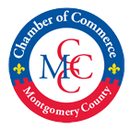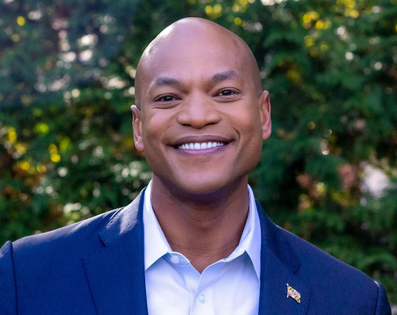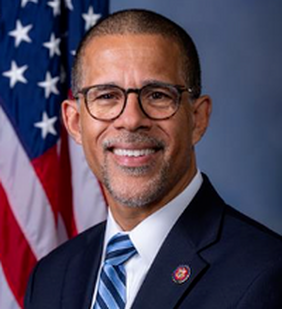Current State Policy Positions
The Montgomery County Chamber of Commerce advocates to ensure that your business has the best chance to grow, and that policies have a positive impact on our community.
Government policy has the ability to impact your business drastically. New laws can either put up barriers for growth, or open new roads to success. With our voice, we advocate on behalf of the Metro Maryland business community.
To learn more about our advocacy priorities, click here.
To learn more about our advocacy priorities, click here.
2024 State Legislation
Maryland Governor Wes Moore, Lieutenant Governor Aruna Miller, Attorney General Anthony Brown, Comptroller Brooke Lierman, and members of Maryland's General Assembly were sworn in in January 2023.
On Wednesday, January 10, 2024, the Maryland General Assembly convened its 2024 Legislative Session.
NEW! Read MCCC's 2024 Maryland Legislative Session Advocacy Report.
On Wednesday, January 10, 2024, the Maryland General Assembly convened its 2024 Legislative Session.
NEW! Read MCCC's 2024 Maryland Legislative Session Advocacy Report.
Jump to:
|
MCCC Member Legislation Spotlight: These are bills where MCCC Members have requested the Chamber submit testimony.
|
Note: Under each category, where applicable, bills are listed numerically, first by House, then Senate, then cross-filed bills.
|
General Statewide Policy Positions
Watch: MCCC's Vice President of Government Affairs testifies before the Montgomery County Delegation on MCCC's state policy priorities.
2024 Maryland Legislative Session
See all 2024 Maryland Legislative Session bills and actions here.
Business Climate
|
House Bill 122
General Provisions - Commemorative Month - Small Business Month Lead Sponsor: Delegate Queen MCCC Position: Support Summary: Requires the Governor to annually proclaim the month of May as Small Business Month in recognition of the contribution that small businesses have made to the State. |
House Bill 516
Climate Crisis and Environmental Justice Act of 2024 Lead Sponsor: Delegate Fennell MCCC Position: Oppose Summary: Establishes the Climate Crisis Initiative in the Maryland Department of the Environment to assess greenhouse gas pollution fees to fund activities for greenhouse gas emissions reduction and sequestration, improvements in resiliency, and the promotion of just economic transition in Maryland. |
|
House Bill 905
Sales and Use Tax Exemption - Qualified Data Center Personal Property - Eligibility Lead Sponsor: Delegate Charkoudian MCCC Position: Oppose Summary: Places new and onerous requirements on entities that seek to utilize Maryland’s sales and use tax exemption for the sale of data center personal property for use at a qualified data center. |
House Bill 1210
Income Tax - Credit for Cybersecurity Measures Undertaken by Small Businesses Lead Sponsor: Delegate Rose MCCC Position: Support Summary: Creates a refundable income tax credit for cybersecurity expenses incurred by a small business to conduct or implement the recommendations of an initial cybersecurity assessment. |
Senate Bill 160
Labor and Employment - Payment of Minimum Wage - Tipped Employees
Lead Sponsor: Senators Ellis and McCray
MCCC Position: Oppose
Summary: Proposes to incrementally reduce and eventually eliminate the tip credit for tipped restaurant employees. MCCC opposes this legislation because it would have a profoundly negative impact on both tipped restaurant workers and full service restaurant operators.
Many restaurant operators continue to face economic challenges adapting their businesses to a post-pandemic environment. Despite this reality, this bill proposes to dramatically change the restaurant industry’s labor costs and create an entirely new business and profitability model for restaurant operators. With the elimination of the tip credit, many restaurants would have to raise menu prices and impose service charges on customer checks to cover substantially higher labor costs.
Labor and Employment - Payment of Minimum Wage - Tipped Employees
Lead Sponsor: Senators Ellis and McCray
MCCC Position: Oppose
Summary: Proposes to incrementally reduce and eventually eliminate the tip credit for tipped restaurant employees. MCCC opposes this legislation because it would have a profoundly negative impact on both tipped restaurant workers and full service restaurant operators.
Many restaurant operators continue to face economic challenges adapting their businesses to a post-pandemic environment. Despite this reality, this bill proposes to dramatically change the restaurant industry’s labor costs and create an entirely new business and profitability model for restaurant operators. With the elimination of the tip credit, many restaurants would have to raise menu prices and impose service charges on customer checks to cover substantially higher labor costs.
House Bill 83 / Senate Bill 538
Noneconomic Damages - Personal Injury and Wrongful Death
Lead Sponsors: Delegate Ziegler and Senator Waldstreicher
MCCC Position: Oppose
Summary: Repeals limitations on noneconomic damages in civil actions for personal injury or wrongful death. Non-economic damages compensate injuries and losses that are not easily quantified by a dollar amount while economic damages can be calculated from documents or records, such as medical expenses and earnings.
MCCC is concerned about House Bill 83 and its impact on Maryland’s ability to keep the costs of doing business competitive. Limitations on noneconomic damages are generally considered friendly to a state’s business climate. This holds especially true for small businesses, which are at greater risk in litigation involving noneconomic damages. Not only would small businesses and other impacted entities confront increased exposure and potential financial burden, but the perception of Maryland’s business competitiveness would be harmed as well.
Noneconomic Damages - Personal Injury and Wrongful Death
Lead Sponsors: Delegate Ziegler and Senator Waldstreicher
MCCC Position: Oppose
Summary: Repeals limitations on noneconomic damages in civil actions for personal injury or wrongful death. Non-economic damages compensate injuries and losses that are not easily quantified by a dollar amount while economic damages can be calculated from documents or records, such as medical expenses and earnings.
MCCC is concerned about House Bill 83 and its impact on Maryland’s ability to keep the costs of doing business competitive. Limitations on noneconomic damages are generally considered friendly to a state’s business climate. This holds especially true for small businesses, which are at greater risk in litigation involving noneconomic damages. Not only would small businesses and other impacted entities confront increased exposure and potential financial burden, but the perception of Maryland’s business competitiveness would be harmed as well.
Economic Development
|
House Bill 1018
Manufacturing Business Personal Property Tax - Exemption Lead Sponsor: Delegate Qi MCCC Position: Support Summary: Exempts all personal property of a person engaged in a manufacturing business that is a small or medium-sized enterprise from the personal property tax. MCCC is supportive of policies that seek to diversify the economy and grow a variety of industries. For the Metro Maryland region and many other parts of the State, providing incentives for manufacturing can create jobs and grow economic opportunities. This is especially true for advanced manufacturing, which is an industry that has tremendous potential and should be a primary economic development focus. Maryland’s policymakers can play a pivotal role by providing incentives for advanced manufacturing to better compete locally. Providing incentives to small and medium-sized manufacturers will help make the industry more viable and continue to diversify Maryland’s economy. |
House Bill 685 / Senate Bill 516
Maryland Aerospace and Technology Commission Lead Sponsor: Delegates Harris & Chang and Senator A. Washington MCCC Position: Support Summary: Establishes the Maryland Aerospace and Technology Commission, whose purpose would be to promote innovation in the fields of space exploration and commercial aerospace opportunities, including the integration of space, aeronautics, and aviation industries into the economy of the State. In Metro Maryland and throughout the State of Maryland, innovative industries are an important part of the economy. To grow these industries and the high-paying jobs they create, it is imperative that policymakers work with the private sector to create competitive pathways for growth. By creating the Maryland Aerospace and Technology Commission, the State would show its commitment to growing and expanding this vital innovation sector of the economy. |
House Bill 579 / Senate Bill 474
Certificate of Public Convenience and Necessity and Related Approvals - Definition of Generating Station (Critical Infrastructure Streamlining Act of 2024)
Lead Sponsor: Governor Moore
MCCC Position: Support
Summary: Allows generating units or facilities, including data centers, to be constructed without obtaining either a Certificate of Public Convenience and Necessity (CPCN) or (2) approval to construct from the Public Service Commission under the CPCN exemption process.
Certificate of Public Convenience and Necessity and Related Approvals - Definition of Generating Station (Critical Infrastructure Streamlining Act of 2024)
Lead Sponsor: Governor Moore
MCCC Position: Support
Summary: Allows generating units or facilities, including data centers, to be constructed without obtaining either a Certificate of Public Convenience and Necessity (CPCN) or (2) approval to construct from the Public Service Commission under the CPCN exemption process.
Environment
Land Use
House Bill 101
State Highway Projects - Removal, Relocation, and Adjustment of Utility Facilities - Notification, Work Plans, and Compliance
Lead Sponsors: Delegate Charkoudian
MCCC Position: Oppose
Summary: Requires the State Highway Administration to provide notice to the owner or operator of a utility facility for the removal, relocation, or adjustment of the utility facility for a State highway project. The bill further prohibits the utility from recovering costs and damages through rates.
MCCC is concerned that HB 101 provides insufficient time for utilities like the Washington Suburban Sanitary Commission (WSSC) to carry out the removal, relocation, or adjustment to a utility for a State highway project. There are simply too many factors involved for a utility to properly and safely meet the timeline proposed in this bill. These difficulties may raise costs for WSSC and lead to disruptions in SHA projects, which is a concern when seeking to move road projects forward.
State Highway Projects - Removal, Relocation, and Adjustment of Utility Facilities - Notification, Work Plans, and Compliance
Lead Sponsors: Delegate Charkoudian
MCCC Position: Oppose
Summary: Requires the State Highway Administration to provide notice to the owner or operator of a utility facility for the removal, relocation, or adjustment of the utility facility for a State highway project. The bill further prohibits the utility from recovering costs and damages through rates.
MCCC is concerned that HB 101 provides insufficient time for utilities like the Washington Suburban Sanitary Commission (WSSC) to carry out the removal, relocation, or adjustment to a utility for a State highway project. There are simply too many factors involved for a utility to properly and safely meet the timeline proposed in this bill. These difficulties may raise costs for WSSC and lead to disruptions in SHA projects, which is a concern when seeking to move road projects forward.
Taxes and Fees
This category covers corporate tax rates, filing fees, and income taxes.
|
House Bill 1515
Sales and Use Tax - Rate Reduction and Services Lead Sponsors: Delegate Moon MCCC Position: Oppose Summary: Imposes a sales tax on virtually all services while lowering by one percentage point the current six percent sales tax. "Taxable service" is defined as "any activity engaged in for a buyer for consideration." |
Senate Bill 622
Community Reinvestment and Repair Fund - Funding (Maryland Reparations Act of 2024) Lead Sponsors: Senator Carter MCCC Position: Oppose Summary: Increases income taxes, the estate tax, and imposes a tax on capital gains. The proceeds of these higher taxes would benefit the Community Reinvestment and Repair Fund, which is a fund that supports communities disproportionately affected by prior cannabis prohibition enforcement. The Fund is currently funded by a 9 percent state sales tax on adult-use cannabis. While MCCC appreciates the disproportionate impact on communities affected by cannabis enforcement prior to the legalization of adult use cannabis, we are concerned about the overwhelming nature of tax increases proposed in Senate Bill 622. This bill proposes an uncompetitive capital gains tax on Marylanders even though other states do not levy such a tax. Additionally, this bill proposes to increase income taxes dramatically despite Maryland already being a high income tax state. Significant tax increases such as those proposed in Senate Bill 622 will harm Maryland’s competitiveness and make it more expensive for small businesses to be in the State. |
House Bill 1007 / Senate Bill 766
Fair Share for Maryland Act of 2024
Lead Sponsors: Senator Hettleman/Delegate Palakovich Carr
MCCC Position: Oppose
Summary: Proposes a myriad of tax increases, including higher income taxes, increased estate taxes, higher taxes for pass-through entities, a 1% surcharge on capital gains, and changes to the corporate tax structure through worldwide combined reporting.
Fair Share for Maryland Act of 2024
Lead Sponsors: Senator Hettleman/Delegate Palakovich Carr
MCCC Position: Oppose
Summary: Proposes a myriad of tax increases, including higher income taxes, increased estate taxes, higher taxes for pass-through entities, a 1% surcharge on capital gains, and changes to the corporate tax structure through worldwide combined reporting.
Corporate Tax Rates
House Bill 1282 / Senate Bill 923
Corporate Income Tax - Rate Reduction (Economic Competitiveness Act of 2024)
Lead Sponsor: Senator Mautz and Delegate Hartman
MCCC Position: Support
Summary: Incrementally reduces, over five taxable years, Maryland’s corporate income tax rate from the current 8.25% to 6.25% for tax year 2027.
Corporate Income Tax - Rate Reduction (Economic Competitiveness Act of 2024)
Lead Sponsor: Senator Mautz and Delegate Hartman
MCCC Position: Support
Summary: Incrementally reduces, over five taxable years, Maryland’s corporate income tax rate from the current 8.25% to 6.25% for tax year 2027.
Filing Fees
Income Taxes
|
House Bill 470
County Income Tax - Rate and Income Brackets - Alterations Lead Sponsor: Delegate Palakovich Carr MCCC Position: Oppose Summary: Proposes to increase from 3.2% to 3.7% the maximum income tax rate that a county may impose. The higher rate would apply to individual filers with a Maryland taxable income more than $250,000 and $300,000 for spouses filing jointly. Tax revenue from the increase would be required to be used for the funding of public education and transportation. MCCC is concerned about the impact this bill would have on the perception of Maryland as a high-tax state. This perception harms Maryland’s business competitiveness and thus makes it more difficult to grow economic activity, create good jobs, and convince businesses to locate or expand. Montgomery County, and perhaps other counties around the State, should not want the distinction of having the highest income tax rate in Maryland. |
House Bill 713
Income Tax - Subtraction Modification for Military Retirement Income - Individuals Under the Age of 55 Lead Sponsor: Delegate Griffith MCCC Position: Support Summary: Increases the amount of a subtraction modification from $12,500 to $20,000 under the Maryland income tax for military retirement income for individuals who are under the age of 55 years. Maryland’s incentives for military retirees to remain here are less competitive than in many other states. Most other states already exempt military retirement income from their state’s taxes. It is imperative that Maryland offers competitive incentives for veterans to remain here after retirement, including those that will continue working and bring entrepreneurship to our economy. In turn, keeping more veterans here in Maryland will benefit Maryland’s tax base, create jobs, and grow economic activity in the future. MCCC supports incentives that seek to keep retirees here in Maryland, and in particular working military veterans. This has been a longtime MCCC priority, most notably through efforts of the Montgomery County Chamber Community Foundation’s (MCCCF) Veterans Institute for Procurement (VIP) program. |
|
House Bill 952
Income Tax - Subtraction Modification - Military Retirement (Keep Our Heroes Home Act) Lead Sponsor: Delegate Rogers MCCC Position: Support Summary: Exempts all military retirement income starting in tax year 2026. MCCC supports incentives that seek to keep retirees here in Maryland, and in particular working military veterans. This has been a longtime MCCC priority, most notably through efforts of the Montgomery County Chamber Community Foundation’s (MCCCF) Veterans Institute for Procurement (VIP) program. Maryland’s incentives for military retirees to remain here are less competitive than in many other states. Most other states already exempt military retirement income from their state’s taxes. It is imperative that Maryland offers competitive incentives for veterans to remain here after retirement, including those that will continue working and bring entrepreneurship to our economy. In turn, keeping more veterans here in Maryland will benefit Maryland’s tax base, create jobs, and grow economic activity in the future. |
Senate Bill 346
Maryland Income Tax - Subtraction Modification - Military Retirement Income (Keep Our Heroes Home Act) Lead Sponsor: Senator Elfreth MCCC Position: Support Summary: Senate Bill 346 phases in an increase in a subtraction modification under the Maryland income tax to allow for a subtraction of all military retirement income beginning in Tax Year 2026. MCCC supports incentives that seek to keep retirees here in Maryland, and in particular working military veterans. This has been a longtime MCCC priority, most notably through efforts of the Montgomery County Chamber Community Foundation’s (MCCCF) Veterans Institute for Procurement (VIP) program. |
Transportation
|
House Bill 913
Motor Vehicles - Registration - Annual Surcharge Lead Sponsor: Delegate Fraser-Hidalgo MCCC Position: Oppose Summary: Requires the owner of a motor vehicle to pay an annual surcharge of $100 for each plug-in electric vehicle or fuel cell vehicle and $75 for every other motor vehicle in addition to the annual registration fee. This bill creates an expensive and onerous new cost on motor vehicles, whether they are electric or gas powered, that is an administrative burden a very expensive for Maryland’s drivers. The expense of owning a motor vehicle, especially for low- and middle-income drivers, would make transportation prohibitively expensive. |
Senate Bill 126/ House Bill 198
Transportation - WMATA Operating Assistance - Alteration (Maryland Metro Funding Act of 2024) Lead Sponsor: Senators Augustine and Feldman; Delegates Korman and J. Lewis MCCC Position: Support Summary: For Fiscal Year 2025, Senate Bill 126 allows for a pause in the requirement that the Secretary of Transportation withhold a portion of the State’s annual operating grant to the Washington Metropolitan Area Transit Authority (WMATA) when WMATA’s budget increases by more than 3% over the previous fiscal year. For Fiscal Year 2025, House Bill 198 allows for a pause in the requirement that the Secretary of Transportation withhold a portion of the State’s annual operating grant to the Washington Metropolitan Area Transit Authority (WMATA) when WMATA’s budget increases by more than 3% over the previous fiscal year. |
Unemployment Insurance
House Bill 205 / Senate Bill 104
Unemployment Insurance Modernization Act of 2024
Lead Sponsor: Delegate Charkoudian and Senator A. Washington
MCCC Position: Oppose
Summary: Changes the methodology to calculate unemployment insurance benefits and alters the taxable wage base used to determine employer contributions to the Unemployment Insurance Trust Fund.
One of the most significant cost factors facing businesses in Maryland is high unemployment insurance taxes. This legislation seeks to further increase the disparity Maryland has with surrounding and competitive states regarding unemployment insurance costs. Increasing unemployment insurance costs could further strain the business community, particularly small and medium-sized companies. It is vital that Maryland remains as competitive as possible to grow the economy and create good jobs.
Unemployment Insurance Modernization Act of 2024
Lead Sponsor: Delegate Charkoudian and Senator A. Washington
MCCC Position: Oppose
Summary: Changes the methodology to calculate unemployment insurance benefits and alters the taxable wage base used to determine employer contributions to the Unemployment Insurance Trust Fund.
One of the most significant cost factors facing businesses in Maryland is high unemployment insurance taxes. This legislation seeks to further increase the disparity Maryland has with surrounding and competitive states regarding unemployment insurance costs. Increasing unemployment insurance costs could further strain the business community, particularly small and medium-sized companies. It is vital that Maryland remains as competitive as possible to grow the economy and create good jobs.
Workforce Development
|
House Bill 1128
Labor and Employment - Workforce Development - Talent Innovation Program and Fund Lead Sponsor: Maryland Department of Labor MCCC Position: Support Summary: Establishes the Talent Innovation Program and the Talent Innovation Fund in the Maryland Department of Labor to increase access to high-quality job training. |
House Bill 425 / Senate Bill 359
Advanced Practice Registered Nurse Compact Lead Sponsors: Delegate Rosenberg and Senator Hayes MCCC Position: Support Summary: Enters Maryland into the Advanced Practice Registered Nurse Compact (APRN) and establishes procedures and requirements for an APRN nurse to practice under a multistate license in other participating states. Maryland and other states in our region continue to grapple with a shortage of frontline health care workers. These shortages are most acutely felt in nursing, an issue that imperils patient access to quality care. The innovative approach in this bill offers a viable solution to the growing nursing shortage by providing the tools necessary to hire nurses and enable telehealth for local practitioners. The bill also reflects our regional economy and the ability for our residents to be able to find health care locally. |
*MCCC Member Legislation Spotlight: The Universities at Shady Grove*
Senate Bill 864 / House Bill 1020
Universities at Shady Grove Regional Higher Education Center - Designation as Community of Innovation
Lead Sponsors: Delegate Rosenberg and Senator Hayes
MCCC Position: Support
Senate Bill 864 / House Bill 1020
Universities at Shady Grove Regional Higher Education Center - Designation as Community of Innovation
Lead Sponsors: Delegate Rosenberg and Senator Hayes
MCCC Position: Support
|
Summary: Designates the Universities at Shady Grove (USG) as the State’s Regional Higher Education Community of Innovation. The bill also alters the purposes of USG to include serving a diverse citizenry in an innovative manner to meet the educational needs of the region and fostering individual academic success leading to career success which positively impacts the entire economy of the region.
By affirming USG’s status as a community of innovation, the entire State of Maryland will enhance the ability to create academic pathways and employment opportunities while providing equitable and affordable educational opportunities vital to moving our economy forward. By recognizing USG with this designation, it grows the institution’s ability to be innovative in its workforce and education objectives that are certain to benefit the economy and continue to address Maryland’s most pressing labor market challenges. |
WATCH: Education, Energy, and the Environment Committee
Public Hearing on Senate Bill 864 |
Montgomery County Delegation Legislation
Statewide Elected Officials
Montgomery County Delegation
See all current Montgomery County Delegation legislation here.
Join the MCCC |
Register for Events |
Member Directory |






